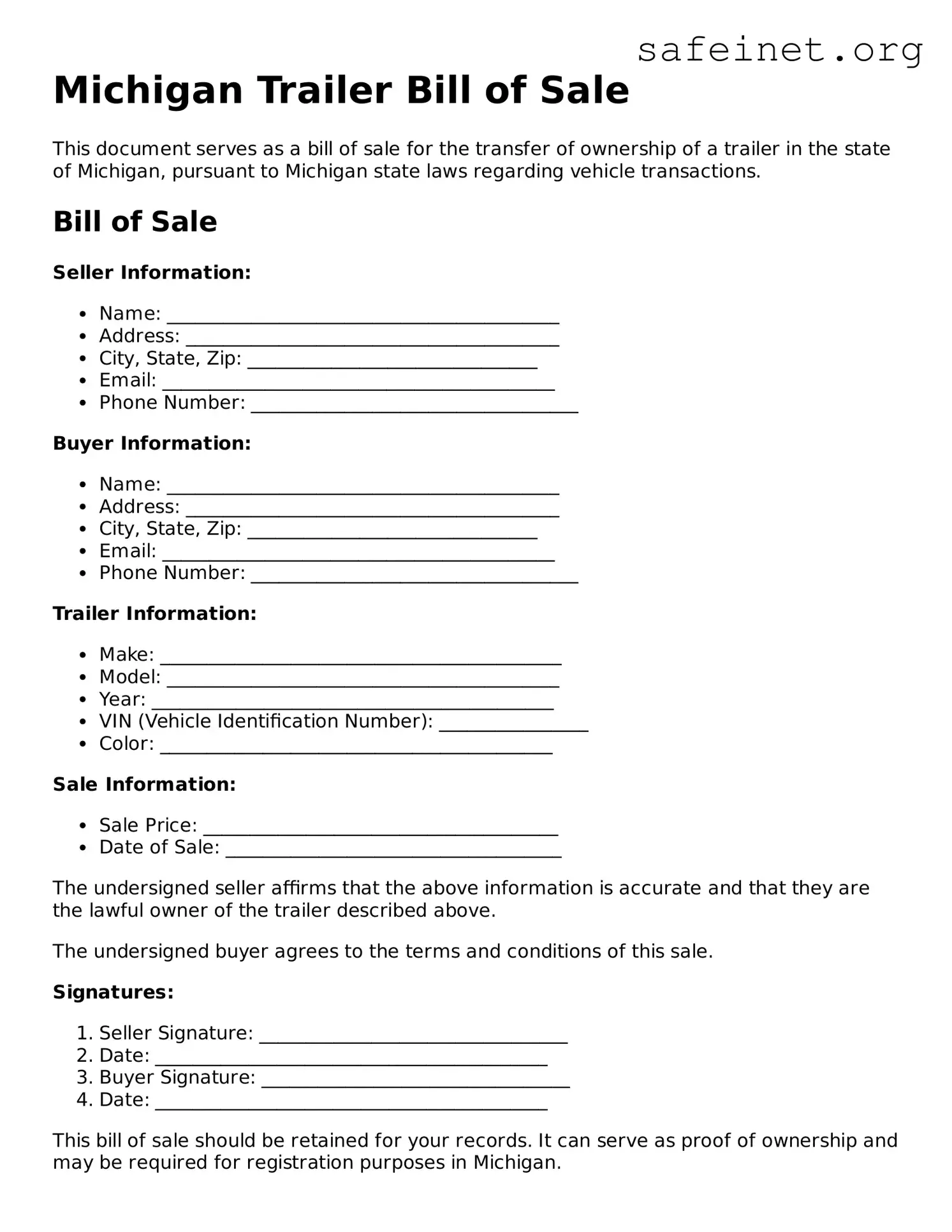What is a Michigan Trailer Bill of Sale form?
The Michigan Trailer Bill of Sale form is a legal document used when a trailer is sold or transferred from one party to another. This form serves as proof of the transaction, detailing information about the trailer, the seller, and the buyer. It helps protect both parties by providing an official record of the sale.
When do I need a Trailer Bill of Sale in Michigan?
You need a Trailer Bill of Sale when you are buying or selling a trailer in Michigan. It is particularly important if the trailer has a registered title. The document is crucial for transferring ownership and ensuring that the new owner can register the trailer with the state.
What information is required on the form?
The form typically requires details such as the names and addresses of both the seller and buyer, a description of the trailer (including make, model, year, and VIN), the sale price, and the date of the transaction. Both parties should sign the document to validate the sale.
Is the Trailer Bill of Sale legally binding?
Yes, once both parties have signed the Trailer Bill of Sale, it becomes a legally binding document. It establishes the terms of the sale and protects the interests of both the buyer and seller. It is important to ensure that all information is accurate before signing.
Do I need to have the Trailer Bill of Sale notarized?
While notarization is not typically required for a Trailer Bill of Sale in Michigan, it is a good practice to have the document notarized. This adds an extra layer of security and helps prevent disputes regarding the sale in the future.
Can I download a Trailer Bill of Sale template online?
Yes, there are various websites where you can download a Trailer Bill of Sale template for Michigan. Ensure that the template complies with state requirements and includes all necessary information to avoid issues later on.
What do I do with the Bill of Sale after the sale?
After the sale, keep a copy of the Bill of Sale for your records. The buyer will need it to register the trailer with the Michigan Department of State. It’s a good idea to follow up to ensure that the registration and title transfer are completed.
Is there a fee associated with the Trailer Bill of Sale?
There is no fee specifically for creating a Trailer Bill of Sale. However, you may incur fees related to trailer registration and title transfer through the state. Always check with the Michigan Department of State for the latest fee schedule.
